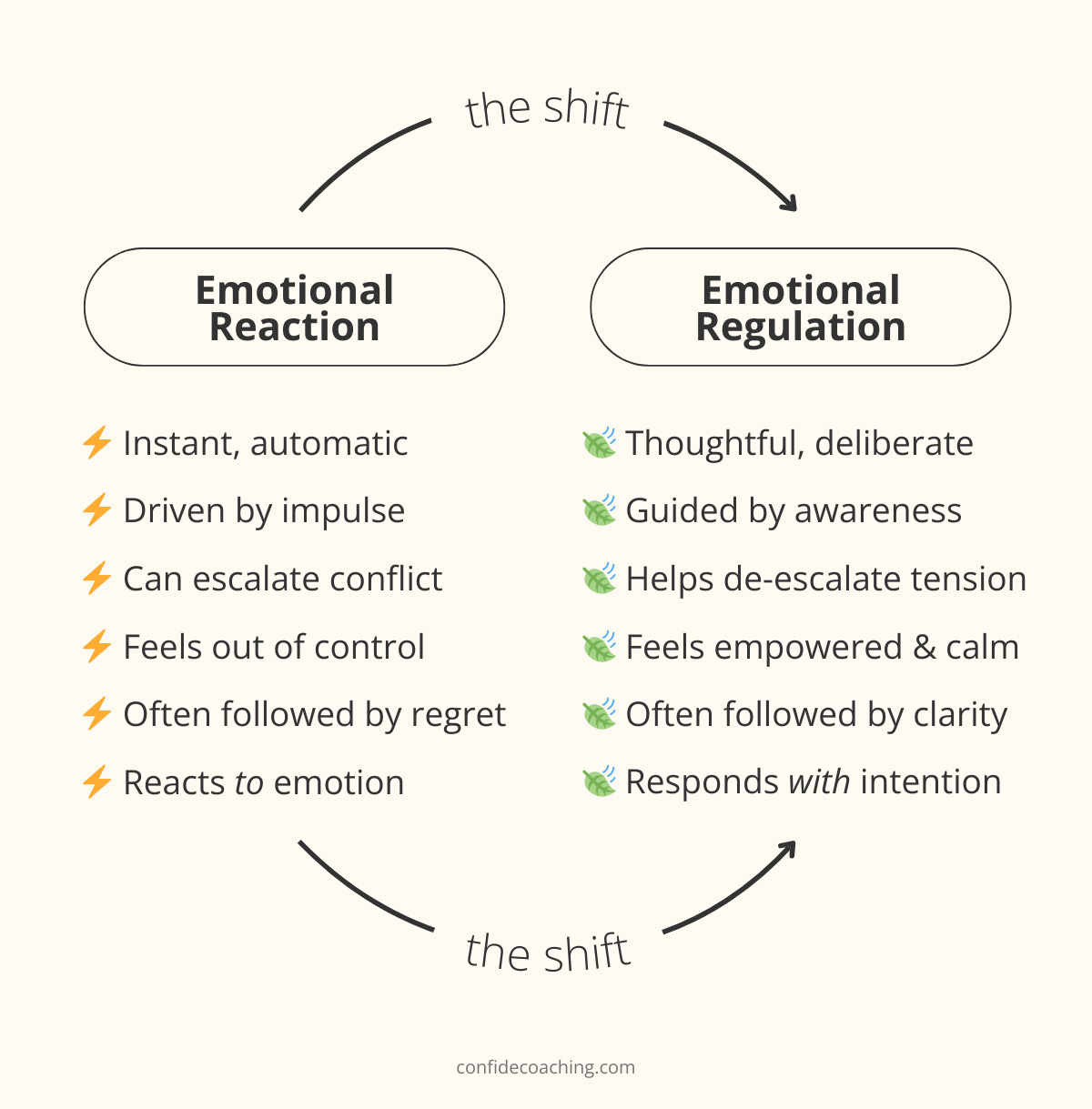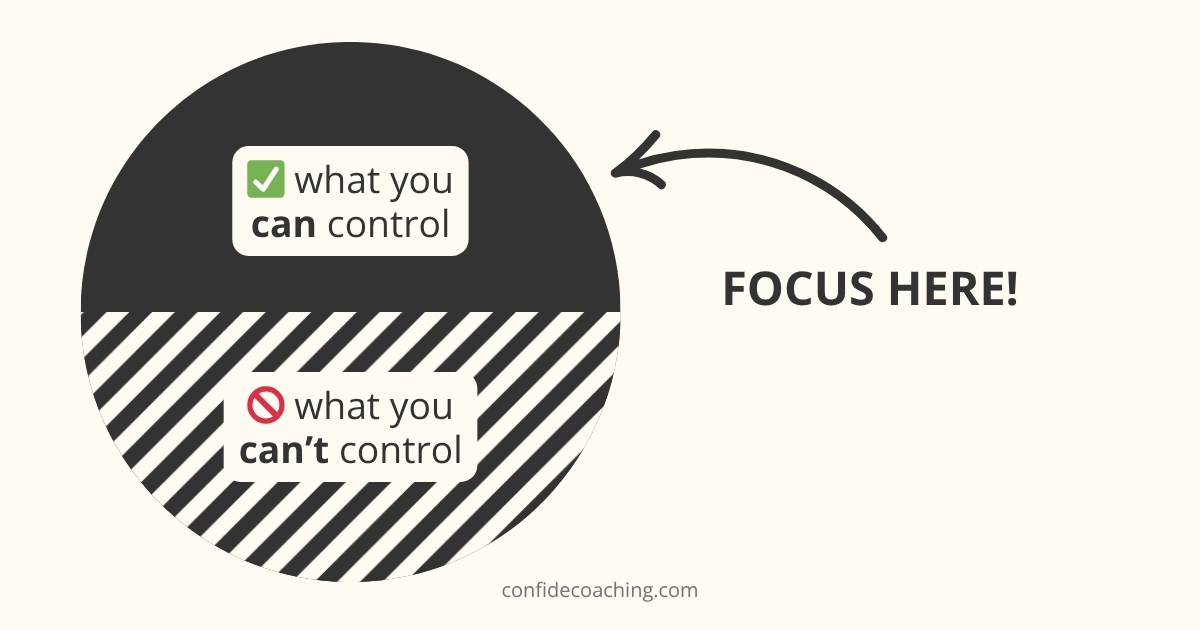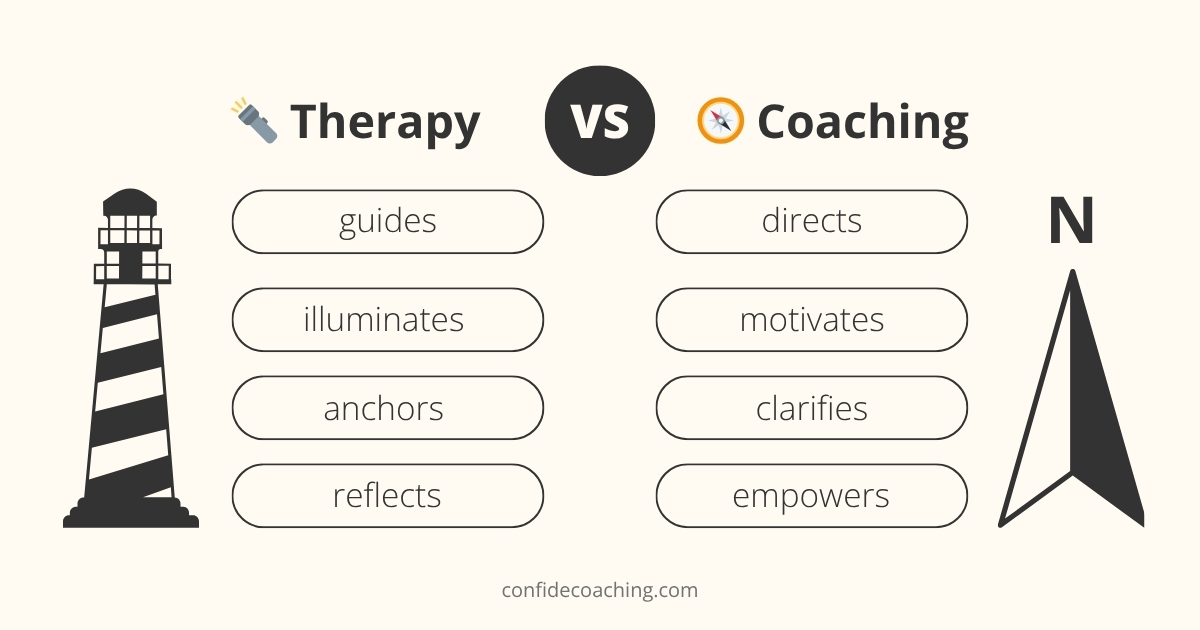
You’ve started couples therapy—now what?
You’ve taken the brave step to start couples therapy. Maybe things haven’t been working for a while. Maybe you’re communicating, but still not connecting. Or maybe you’re just trying to stay ahead of deeper problems before they set in. Whatever brought you to therapy, you’re showing up and doing the work—and that matters.
But what if something still feels stuck?
That’s something I hear from some of my coaching clients who are also doing couples or marriage counseling. Even as they gain insights in therapy, they find themselves hitting roadblocks in their day-to-day life. They understand what needs to change, but struggle with the how. They want to respond differently in conversations, break out of old patterns, or rediscover a sense of direction—but don’t know where to start.
That’s where life coaching can offer powerful support.
While therapy helps you and your partner understand the relationship dynamic, life coaching gives you tools to grow as an individual alongside it. It helps you build clarity, confidence, and resilience—so you can bring your whole, grounded self into the work you’re doing as a couple.
In this article, we’ll explore how life coaching can complement couples therapy, why the combination is often more effective than either one alone, and what kind of personal growth becomes possible when you focus on your part of the equation.
Couples Therapy: What It’s Designed to Do
Couples therapy is designed to improve the relationship—not necessarily each individual in it. That’s a subtle but important distinction.
In most therapy sessions, the focus is on the dynamic between you and your partner: how you communicate, how you handle conflict, where trust has broken down, and what unspoken needs might be driving tension. A skilled therapist helps both of you notice the patterns you’ve created together—many of them unconscious—and begin to shift toward more honest, respectful, and connected ways of relating.
This work is powerful. But it has its limits.
Because the lens is on the relationship, therapy doesn’t always dive into what you need as an individual—especially when it comes to things like your daily habits, emotional regulation, identity shifts, or personal purpose. Many clients walk away from sessions with better understanding, but not always with a clear plan for how to change their role in the dynamic.
And when one or both partners are feeling overwhelmed, uncertain about their own direction, or stuck in old ways of coping, even the best couples therapy can plateau.
That’s not a failure—it’s a signal.
It’s a sign that more individual support might be needed. Not in place of therapy, but alongside it. That’s where life coaching comes in—offering a practical, forward-looking space to work on the parts of the relationship that begin with you.
What Life Coaching Brings to the Table
Life coaching is not therapy. It doesn’t focus on healing trauma or unpacking your past. Instead, coaching helps you move forward from where you are now—with clarity, purpose, and concrete tools to take action.
That’s exactly why it can be such a powerful companion to couples therapy.
Where therapy often looks at why a dynamic exists, coaching helps you decide what you want to do about it. It offers space to explore your individual mindset, habits, and goals—so you can begin to show up differently in the relationship, not just talk about it. Coaching is about building emotional agility, uncovering patterns that hold you back, and practicing small shifts that can lead to big change.
When clients are also in couples therapy, our work together tends to focus on:
- Developing self-awareness without falling into self-blame
- Strengthening boundaries while staying open
- Identifying emotional triggers and choosing more skillful responses
- Clarifying personal values, goals, and the life you want (with or without the relationship)
- Rebuilding a sense of identity and confidence outside of being someone’s partner, parent, or provider
Coaching also gives you momentum. Relationship work can feel heavy—sometimes progress is slow, or conversations keep circling the same issues. Coaching offers a space where you’re reminded of your own agency. It helps you shift from “waiting for things to change” into “here’s what I can change, right now.”
If therapy gives you insight into the relationship, coaching helps you act on it.
5 Ways Life Coaching Can Support You During Couples Therapy
While couples therapy centers on the relationship, life coaching focuses on you—your habits, mindset, choices, and clarity. When used together, they can create a powerful feedback loop: therapy helps you understand the “why,” and coaching helps you live the “how.” Here are five ways coaching can support you during couples therapy:
1. You’ll Get to Know You Again
In long-term relationships, especially those shaped by years of caregiving, compromise, or chronic conflict, it’s easy to lose your sense of self. You might find yourself wondering: Who am I when I’m not trying to fix, appease, or accommodate someone else?
Coaching creates space to reconnect with your identity beyond your roles. Whether that means rediscovering creativity, rebuilding confidence, or simply clarifying what you want for your life, coaching helps you return to yourself.
Real-world example: One client realized she had built her entire life around keeping her partner happy—and had no idea what brought her joy anymore. Our work wasn’t about leaving the relationship. It was about reclaiming her own compass so she could engage from a place of strength, not sacrifice.
2. You’ll Learn to Communicate from Clarity, Not Reactivity
Therapy often teaches tools for better communication—but coaching helps you practice those tools in your real life.
That means rehearsing how to speak from calm instead of defensiveness. It means untangling the knot of emotions before you open your mouth. And it means learning how to stay grounded even when your partner doesn’t respond the way you hoped.
Real-world example: One client used coaching sessions to prepare for emotionally loaded conversations—identifying what he wanted to say, how to stay centered if things got heated, and what his limits were. The result? Fewer blow-ups, more progress.

3. You’ll Build Inner Resilience for Hard Conversations
Couples therapy can bring up old wounds, long-standing disappointments, or uncomfortable truths. It’s hard work. Without tools for emotional regulation, it’s easy to shut down—or lash out.
Coaching helps you stay present through discomfort. You’ll build internal resources for managing stress, recovering from tension, and showing up with integrity even when it’s hard. That kind of resilience not only benefits the relationship—it protects your mental and physical well-being.
Real-world example: A client who dreaded conflict learned to identify when she was triggered and how to calm her nervous system before engaging. Instead of avoiding tough conversations, she began entering them with more clarity and less fear.
4. You’ll Untangle What’s Yours to Work On
Not every issue in a relationship is shared. Some patterns—like perfectionism, avoidance, people-pleasing, or anger—have deeper roots. They may show up in the relationship, but they didn’t start there.
Coaching helps you take responsibility for what’s truly yours to shift—without falling into blame or guilt. This is especially valuable when one partner is doing deeper emotional work, and the other is more focused on practical change.
Real-world example: One client kept reacting with defensiveness every time his partner gave feedback. Through coaching, he uncovered a fear of being seen as a failure—something tied to his work life, not his marriage. That insight helped him soften and stay present during difficult conversations.
5. You’ll Stay Motivated When Progress Feels Slow
Therapy isn’t always a straight line. Sometimes you’ll feel stuck. Sometimes your partner won’t be as committed as you are. And sometimes, you’ll just be tired.
Coaching gives you a sense of traction—by helping you focus on what is in your control. It can also help you stay on track with other life goals (career, health, creativity), so your entire identity isn’t consumed by “fixing the relationship.”
Real-world example: A client who felt disheartened by her partner’s lack of progress used coaching to stay connected to her own growth. She stopped putting her life on pause—and, ironically, that new energy led to more openness in the relationship.

Can You Do Therapy and Coaching at the Same Time?
Absolutely—and many people do.
Therapy and life coaching are different by design, but they complement each other in powerful ways. Therapy tends to be inward-facing: it helps you process the past, work through emotional wounds, and understand how patterns formed. Coaching, on the other hand, is forward-facing: it helps you build the habits, mindset, and clarity to take meaningful action in the present.
When you’re doing both, you’re covering more ground. Therapy helps you understand why you’re stuck; coaching helps you decide how to move forward. Therapy gives you the language to describe your experience; coaching gives you the tools to change it.
This dual approach can be especially helpful during times when:
- One partner is moving faster than the other in therapy
- Emotional processing needs to be paired with practical steps
- You’re committed to the relationship but also know you need to grow individually
- You want to make sure you don’t lose sight of your own life goals while working on the relationship
The key is integration, not duplication. A good life coach won’t step into the role of a therapist. Instead, they’ll support your personal growth in a way that strengthens—not sidelines—the work you’re doing with your partner.

How to Choose the Right Coach if You’re in Therapy
If you’re already in couples therapy (or planning to start), choosing the right life coach matters. You’re not just looking for someone who motivates you—you’re looking for someone who understands the unique emotional terrain you’re navigating and knows how to work alongside therapy, not against it.
Here are a few things to look for:
- Respect for boundaries: A skilled coach won’t try to do therapy. They’ll understand where coaching ends and therapy begins—and they’ll never undermine the therapeutic process.
- Focus on the present and future: You want someone who helps you take what you’re learning in therapy and turn it into action. Coaching should feel practical, clear, and forward-moving.
- Experience working in parallel with therapy: It helps if the coach has supported other clients who were also in therapy. They’ll know how to help you integrate insights, manage emotional load, and avoid overwhelm.
- A grounded, non-reactive presence: You may need to process moments of confusion, fear, or anger. A coach who can stay calm and ask the right questions—not jump to conclusions—will serve you best.
- Alignment with your values: Look for someone who listens deeply, honors your pace, and respects your intentions—whether that’s to grow within your current relationship or to find clarity about its future.
A good coach doesn’t give advice. They help you hear yourself more clearly—so you can lead from a place of strength, not fear.
Your Relationship Isn’t Just With Your Partner
Couples therapy can repair and strengthen the bond you share. But life coaching supports the relationship you have with yourself—and that’s the foundation of everything else.
You don’t have to choose between working on your partnership and growing as an individual. You can do both. And when you do, you don’t just “fix” the relationship—you evolve as the kind of person who builds better ones.
Want to Learn More About Life Coaching?
If you’re curious whether life coaching can support the work you’re doing in therapy, I offer a free discovery session designed specifically for people navigating relationship growth.
You can book your session here
It’s a chance to explore how coaching might support you—not just in your relationship, but in reclaiming your clarity, confidence, and direction.

Paul Strobl, MBA, CPC
Owner of Confide Coaching, LLC
Paul is a Master Life Coach for GenX and GenY executives and business owners. Originally from Houston, Texas, he has been location independent for most of his adult life. He currently resides in the Rhodope Mountains of Bulgaria near the Greek border with his brilliant wife, 14-year-old stepson (officially adopted in 2021!) and a Posavac Hound rescue.

